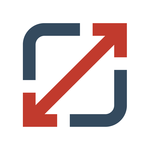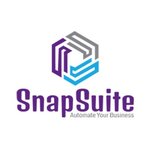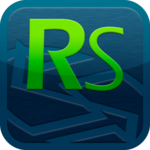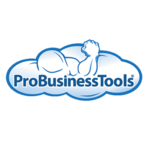Yes, most modern plumbing software is compatible with a variety of devices and platforms, including PCs, laptops, tablets, and smartphones. This is made feasible by cloud-based technology, which allows customers to access their plumbing software from any location with an internet connection. Furthermore, several plumbing software companies provide mobile apps for iOS and Android smartphones, making it easier for plumbers to run their businesses on the road.
List of 20 Best Plumbing Software
Groundplan is cloud-based takeoff software that simplifies cost estimates by providing comprehensive templates and responsive device compatibility. With integrated job management, work is streamlined and exporting takeoff estimates is effortless. Tru...Read More Groundplan
PlanSwift offers an effortless and precise method of generating project estimates through its user-friendly drag-and-drop interface. Digitize blueprints and effortlessly measure linear dimensions, angles, and more. In just a few seconds, consolidate...Read More PlanSwift
SnapSuite: solution for optimizing your contractor operations. Our comprehensive platform allows you to seamlessly manage schedules in real-time and automatically generate documents, while still customizing to your unique processes. Boost efficiency...Read More SnapSuite
Edison is a plumbing service software that revolutionizes business operations. With advanced features such as price list uploading, specification management, service tracking, and technician management, Edison simplifies your work process. Its user-f...Read More Edison
Zuper is a field service management solution designed to streamline your daily operations. With our intuitive software, you can easily schedule, invoice, and dispatch tasks, all in one place. Automate your essential processes and boost overall produc...Read More Zuper
simPRO is a software designed to streamline project management tasks. Revolutionize your business with real-time tracking, automated scheduling, and advanced reporting capabilities. Wave goodbye to tedious manual processes and embrace a smoother work...Read More simPRO
RazorSync offers a seamless payment solution, eliminating the risk of missed transactions. Its cutting-edge mobile credit card processing feature allows effortless acceptance of payments from various debit and credit cards. Say farewell to complexiti...Read More RazorSync
KickServ is an advanced dispatch scheduling software that is tailored to optimize your operations and enhance efficiency. Our customizable features and robust tools allow you to effectively organize and manage your business tasks. Our committed suppo...Read More Kickserv
ProBusinessTools is web-based software specifically created to enhance operations and boost productivity for service-based enterprises. Its advanced capabilities include dynamic inventory management, automated payroll, and exceptional customer suppor...Read More ProBusinessTools
Breezeworks is team and appointment management software that simplifies your workflow. Its real-time updates, streamlined invoicing and automatic notifications keep you organized and productive. Try it out with a free 14-day trial and experience the...Read More Breezeworks
Wenduct and Wenpipe is a solution for commercial HVAC contractors. This exceptional software offers efficient on-screen takeoff for ductwork and piping projects, eliminating room for error. With seamless integration with CAD, project management, and...Read More Wenduct and Wenpipe
Powered Now is a and efficient field service management software specifically designed for small businesses. Its advanced features, including scheduling management, customizable invoices, and accurate estimates, make it easy to streamline team operat...Read More Powered Now
Jobox is solution for connecting customers with trustworthy home service professionals. Through our user-friendly app, customers can easily discover and hire verified pros in their local area, while effortlessly managing appointments and payments. El...Read More Jobox
PIM – solution for plumbers in need of streamlined service management. Specifically designed for plumbing businesses, PIM simplifies daily tasks and processes. From appointment scheduling to customer management and invoice creation, PIM has go...Read More PIM (Plumbing Invoicing & Management)
Pointman - business management software designed to streamline operations. With its advanced features including job tracking, CRM, and live analytics, Pointman enables businesses to boost productivity, improve customer satisfaction, and make strategi...Read More Pointman
Smart Service is solution for efficient industry management. Streamline your operations with automated scheduling, routing, and tracking tasks for a variety of activities including repairs, construction, oil industry, documentation, HVAC, and pest co...Read More Smart Service
Scheduling Manager Field Service Management Software designed specifically for Startups and Agencies. This all-in-one web-based solution includes key features such as Contract Management, Estimates, Job Tracking, Recurring Appointments and a Customer...Read More Scheduling Manager
AroFlo, the cloud-based software designed for construction and field service industries. This powerful solution is designed to streamline administrative tasks and automate workflows, providing businesses with increased efficiency and productivity at...Read More AroFlo
Formitize is a business platform that transforms traditional paper-based processes into efficient and streamlined operations. Our software offers a range of solutions including forms, job management, CRM, safety, and more, all integrated to increase...Read More Formitize
Vonigo, the complete service dispatch software designed to streamline and simplify your service business. Our cutting-edge features and tools eliminate the need for manual bookings, while our online booking engine enables you to connect with clients...Read More Vonigo
Learn More About Plumbing Software
- What Is Plumbing Software?
- What Are The Recent Trends In Plumbing Software?
- Benefits Of Using Plumbing Software
- Important Factors To Consider While Purchasing Plumbing Software?
- What Are The Key Features To Look For In Plumbing Software?
- Why Do Businesses Need Plumbing Software?
- How Much Time Is Required To Implement Plumbing Software?
- What Is The Level Of Customization Available In Plumbing Software?
- Which Industries Can Benefit The Most From Plumbing Software?
- Conclusion
What Is Plumbing Software?
Plumbing software is a specialist technology used to streamline and improve many parts of the plumbing industry. It is a digital system that assists plumbers and plumbing companies in better managing their day-to-day operations, including scheduling, billing, inventory monitoring, and client management. One of the most important characteristics of plumbing software is its scheduling ability.
With a centralized calendar, plumbers can simply manage appointments, schedule new tasks, and make modifications while on the go. This allows for better time management and decreases the possibility of double reservations, resulting in a smooth and effective process. Plumbing software, in addition to scheduling, includes extensive invoicing and billing features.
It enables plumbers to generate professional, uniform invoices and quotations that can be emailed directly to clients via the program. This removes the need for human documentation, lowers the risk of errors, and improves the entire customer experience. Plumbing software includes options for managing inventories in addition to appointments and billing.
This allows plumbers to keep track of their supplies and equipment, ensuring they have the right resources for the job. Some software even includes options for automatic replenishment when supplies run low, allowing plumbers to prevent delays and disturbances. Another key advantage of plumbing software is the capacity to handle client data.
It enables plumbers to save customer information, job histories, and comments, making it easier to build relationships and provide specialized services. Some software even includes customer communication tools such as automated reminders and follow-ups, which help to keep a solid relationship with clients. Overall, plumbing software is a must-have tool for modern plumbing companies aiming to streamline their operations and increase customer experience.
Its scheduling, invoicing, inventory management, and customer management tools assist plumbers in saving time, reducing errors, and providing a better experience to their customers. Consider investing in plumbing software to help your business grow.
What Are The Recent Trends In Plumbing Software?
In recent years, the plumbing business has shifted significantly toward technology and software solutions. With the rise of smart homes and the demand for efficiency, plumbing software has become an essential tool for plumbers, contractors, and homeowners alike. As a potential buyer, you must stay current on the newest trends in plumbing software in order to make an informed decision for your organization.
1. Cloud-Based Solutions: One of the most significant trends in plumbing software is the transition to cloud-based solutions. This enables plumbers to access their data and run their businesses from any device with an internet connection. As remote work becomes more popular, cloud-based software provides convenience, flexibility, and real-time data access.
2. Mobile Applications: The proliferation of mobile applications has made it easier for plumbers to run their businesses on the go. These apps enable plumbers to organize their schedules, track work, and connect with clients using their smartphones or tablets, thereby enhancing overall efficiency and productivity.
3. The Internet of Things (IoT): is transforming the plumbing sector. With smart devices and sensors linked to a central management system, plumbers can remotely monitor and control plumbing systems, identify leaks and inform clients of possible problems, and track equipment performance in real time.
4. Artificial Intelligence (AI): AI is increasingly being used in plumbing software to help with scheduling, diagnosing plumbing issues, and giving predictive maintenance solutions. With AI, plumbers may save time while providing more precise and efficient services to their customers.
5. Integrations With Accounting Software: Many plumbing software solutions now integrate with accounting software, making it easier to handle your plumbing business's finances and bookkeeping. This interface also enables easy invoicing and payment processes, which benefits both plumbers and clients.
Benefits Of Using Plumbing Software
Plumbing is a vital component of all buildings, whether residential, commercial, or industrial. Installation, maintenance, repairs, and replacements are all time-consuming and complicated processes. Plumbing software is gaining popularity among plumbing contractors and experts as a means of simplifying these processes and streamlining business operations. So, what actually constitutes plumbing software? It is a digital platform created exclusively for the plumbing business to handle and coordinate a variety of operations, including scheduling, billing, inventory management, client management, and others. With technological innovation, plumbing software has evolved into a complete solution for plumbing enterprises, providing several benefits in terms of production, efficiency, and customer happiness.
Here are some of the main advantages of using plumbing software:
1. Streamlined Business Processes: One of the key benefits of employing plumbing software is that it simplifies business processes. It removes the need for manual operations like paperwork and data entry, allowing plumbers to better manage their daily activities. The software automates a variety of operations, including appointment scheduling, invoice generation, and client information updates, saving plumbers time and effort.
2. Enhances Communication And Collaboration: Effective communication and collaboration are critical to the success of any business. Plumbing software allows all team members to access and change real-time data, promoting seamless communication and collaboration. This guarantees that everyone is on the same page and can collaborate efficiently, resulting in higher productivity and customer satisfaction.
3. Improves Client Management: Customer management is an essential component of any organization, and plumbing software makes it easier to manage client data and interactions. It enables you to develop and maintain client profiles, keep service history, and communicate critical information to customers. This contributes to the development of strong client relationships and the provision of individualized service, resulting in enhanced customer satisfaction and retention.
4. Facilitates Efficient Scheduling: Scheduling is an important component of plumbing services, and software may make the process much easier. Plumbing software enables you to establish and manage calendars for appointments, services, and chores, ensuring that all works are performed on time. It also allows you to track technicians' availability and distribute jobs accordingly, resulting in improved time management and fewer scheduling conflicts.
5. Aids In Inventory Management: Effective inventory management is critical for plumbing organizations to guarantee that they have the right tools and supplies to complete jobs. Plumbing software can assist with inventory management and tracking, purchase order generation, and stock level tracking. This helps to avoid supply shortages and ensures that all jobs are finished without delay due to a lack of supplies.
Important Factors To Consider While Purchasing Plumbing Software?
Efficiency and order are essential for running a successful plumbing business. With technological improvements, plumbing software has become a crucial tool for plumbers to optimize productivity, manage business operations, and improve customer service. However, with so many options on the market, it can be difficult to select the best plumbing software for your business.
To assist you in making an informed decision, these are the key elements to consider when selecting plumbing software:
1. Features And Functionality: The first and most important considerations are the software's features and functionality. Make sure the program includes all of the tools and features your company requires, such as task scheduling, invoicing, inventory management, customer management, and reporting. It should also be simple and easy for you and your team to navigate and use.
2. Compatibility And Integration: Another important consideration is the software's compatibility and integration with your existing systems and tools. It should be smoothly integrated with your accounting, CRM, and other business tools. This will enable seamless data flow and prevent duplication of efforts.
3. Mobile Accessibility: In today's fast-paced environment, you must be able to access your business information while on the go. As a result, consider plumbing software that provides mobile access via a smartphone app or internet portal. This allows you to operate your business from anywhere and at any time, improving your response time to consumer requests.
4. Cost And Price: While cost should not be the main deciding factor, you should consider your budget and the software's price structure. Some software may require a one-time payment, whereas others may operate on a subscription basis. Consider the options available and select the pricing plan that best meets your company's needs and financial capacity.
5. Customer Support: In the event of a technical problem or concern, it is critical to have dependable customer service from the software vendor. Look for a company that provides 24/7 support via a variety of channels, including phone, email, and live chat. You may also examine internet reviews or request references to ensure that customer service is swift and effective.
6. Training And Onboarding: You and your team will need to go through some training and onboarding when you start using new software. Make sure the software vendor provides adequate training and resources to help you become acquainted with the product and its features. Some sellers may even provide a free trial or demo of the program before you make a purchase.
7. Security And Data Protection: Given that the program contains sensitive consumer and corporate information, security and data protection should be a high focus. To protect your information from cyber dangers, select a software supplier that offers robust data encryption, regular backups, and other security measures.
What Are The Key Features To Look For In Plumbing Software?
When it comes to selecting the best plumbing software for your business, there are a few crucial characteristics to consider. These qualities have a significant impact on the efficiency, productivity, and profitability of your plumbing business.
Here are the key characteristics to look for in plumbing software:
1. Scheduling And Dispatching Applications: Any plumbing company must be able to effectively manage their team's schedules and deploy them to various assignments. Look for software that lets you schedule appointments, assign assignments, and monitor the status of your team in real time. This ensures that your staff stays on top of their task and that jobs are finished on schedule.
2. Project Management And Tracking: The ability to track the progress of each project is critical for plumbing businesses. Look for software that lets you create and allocate jobs, track material and labor costs, and generate work performance reports. This will allow you to examine your company's productivity and make more educated decisions to increase efficiency.
3. Invoicing And Payment Processing: Any competent plumbing software should include invoicing and payment processing capabilities. This will simplify your billing process and offer your consumers simple payment options. Look for software that can help you make and send professional-looking bills, track payments, and manage client data.
4. Inventory Management: Managing inventory can be time-consuming and labor-intensive for plumbing companies. Look for inventory management software that can maintain stock levels, manage supplier information, and estimate future demands. This ensures that you always have enough materials for your jobs without overstocking or running out of supplies.
5. client Relationship Management (CRM): Maintaining solid client relationships is critical for every firm. Look for software that has CRM features like customer profiles, communication tools, and appointment reminders. This will help you create and maintain relationships with your clients, resulting in repeat business and favorable feedback.
6. Mobile Compatibility: In today's fast-paced corporate world, it's critical to have software that can be used from anywhere. Look for plumbing software that works with mobile devices, so you and your team can access and update information while on the job. This will increase communication and data accuracy, leading to more efficient operations.
7. Integration Capabilities: To get the most out of plumbing software, search for solutions that can interact with other tools and software you already use, like as accounting or project management software. This will eliminate the need for manual data entry while increasing data accuracy. With these crucial aspects in mind, you can confidently select the best plumbing software to fit your company's specific requirements.
Remember to thoroughly weigh your options, consider your budget, and take advantage of free trials before making a final choice. A good plumbing software can dramatically improve your company's operations and keep you ahead of the competition.
Why Do Businesses Need Plumbing Software?
Plumbing firms require strong management and organization to accomplish work efficiently, maintain customer happiness, and boost revenue. Plumbing software simplifies activities like scheduling, invoicing, expense keeping, and client information management. Businesses that invest in plumbing software can streamline their operations, save time and money, and increase overall performance.
One of the primary reasons why organizations want plumbing software is the ability to automate daily chores. With capabilities like job scheduling and dispatching, organizations can quickly assign and track projects, ensuring that each task is completed on time and efficiently. This not only helps businesses manage their workloads, but it also improves customer service by cutting appointment wait times.
Furthermore, plumbing software includes a full customer database, making it simple to store and manage consumer information. This includes contact information, job history, and notes, creating a consolidated destination for all customer contacts. This not only enhances customer communication, but also enables firms to track client preferences and customize services accordingly.
Plumbing software, in addition to organizing and communicating, provides comprehensive financial management tools. Businesses can simply manage their finances and analyze their profitability by establishing estimates and invoices, as well as tracking expenses and payments. Furthermore, many plumbing software packages link with common accounting software, making tax and financial reporting simple.
Another advantage of investing in plumbing software is the ability to create extensive reports and statistics. Tracking key performance indicators allows firms to obtain important insights into their operations and make data-driven decisions to boost growth and efficiency. This also enables firms to discover areas for improvement and adapt their plans accordingly.
Overall, plumbing software is an excellent resource for organizations trying to streamline operations, improve customer service, and boost profits. Plumbing software is a comprehensive solution that may provide firms with a competitive advantage in the field, thanks to its automation capabilities, client database, financial management tools, and reporting features.
How Much Time Is Required To Implement Plumbing Software?
The time required to develop plumbing software varies according to a number of factors. These criteria include the type of software, the size of your company, and the functionality and customizations you need. On average, it takes at least a few weeks to fully integrate plumbing software and reap the benefits. This period, however, can vary depending on the business. Let's go into the specifics of the implementation process and the variables that can influence the timeline.
1. Selecting The Proper Software: The first step in deploying plumbing software is to select the proper one for your company. This entails investigating and evaluating many possibilities to determine the greatest fit. The time required for this step varies depending on the level of research and the number of software solutions you explore. Some firms may require a few days or weeks, while others may take longer.
2. Data Transfer And Setup: Once you've decided on plumbing software, the following step is to transfer your existing data and configure the software for your business. This could include creating user accounts, importing customer data, and altering templates and forms. This stage might take anywhere between a few days and a few weeks, depending on the complexity and scale of your organization.
3. Training Your Team: Proper team training is required for effective plumbing software implementation. This involves showing them how to utilize the software and its capabilities, as well as any new processes or workflows. The length of training will be determined by the software's complexity and your team's learning curve.
4. Customization And Integration: While most plumbing software includes typical capabilities, you may need to customize it further or integrate it with other tools. The time required for this stage varies according on the extent of customization and the complexity of the integration. It could take a few days or weeks to properly configure and test these changes and integrations.
5. Adjustments And Testing: Once the program is up and running, you may need to make tweaks or fine-tune specific features to ensure that it meets your company's exact requirements. This procedure can take anything from a few days to a week, depending on how complex the changes are and how many revisions are needed.
What Is The Level Of Customization Available In Plumbing Software?
Plumbing software is an essential tool for plumbing businesses since it streamlines and automates activities like billing, scheduling, and customer management. One key factor to consider while selecting plumbing software is the extent of customization. Simply said, customization means that the software can be adjusted to your exact business needs and operations.
Most plumbing software provides varied degrees of customization, with some being very adjustable and others having few possibilities. Before choosing a program, you should consider the level of customization available and whether it meets your business needs. To help you make an informed decision, let's look at the various levels of customization offered in plumbing software.
Basic customization options include modifying invoice templates, adding a company logo and contact information, and configuring notification settings. Most plumbing software includes these tools, which allow you to personalize company papers and client communications. Some software extends customisation by allowing you to create custom fields and forms.
This feature is important for documenting unique customer information or task needs. For example, you could add a custom field to gather consumer design choices for a bathroom renovation project. More complex plumbing software provides extensive customization capabilities, allowing you to develop workflows that are specific to your business processes. You can modify the workflow by adding or removing phases, assigning tasks to individual team members, and creating automated reminders.
This amount of flexibility means that the software adapts to your business, rather than the other way around. It is worth noting that the level of customisation frequently corresponds with the software's pricing, with highly customized software typically costing more. As a result, it is critical to find a balance between your budget and the customized options you require.
Which Industries Can Benefit The Most From Plumbing Software?
Plumbing software has emerged as a crucial tool for plumbing enterprises. Its extensive features and capabilities have greatly increased the efficiency, productivity, and profitability of plumbing contractors, service providers, and suppliers. While the advantages of plumbing software are obvious, many purchasers may ask which sectors might gain the most from utilizing it.
Let's explore, we'll look at the different areas where plumbing software can have a large impact and how.
1. Plumbing Contractors: Plumbing contractors are the most obvious industry to gain from plumbing software. Contractors can use services like task scheduling, inventory management, and invoicing to better manage their projects, eliminate paperwork, and streamline their operations. This can result in increased productivity, faster project completion, and more client satisfaction.
2. Facility Management: Plumbing software can be quite beneficial to the facility management business. With a large number of buildings to manage, facility managers can utilize software to track maintenance chores, schedule preventative maintenance, and monitor equipment performance. This can lower the likelihood of problems, shorten downtime, and save money on emergency repairs.
3. Property Management: Property management companies have a large number of properties to handle, and regular plumbing maintenance is an important part of their job. Plumbing software can help them manage service orders, track expenses, and keep up with maintenance schedules. This can lead to better property management that is both organized and cost effective.
4. Hospitality Industry: Hotels, resorts, and other hospitality firms frequently experience plumbing issues that affect the comfort of their guests. Plumbing software can assist these firms in monitoring and managing their plumbing systems, assuring prompt repairs and upkeep. This can result in a better guest experience, great ratings, and increased revenue.
5. Municipalities: Municipalities are in charge of maintaining the plumbing systems in public buildings, parks, and other locations. Plumbing software allows them to easily handle service orders, track maintenance chores, and keep track of equipment and inventory. This can help them save money, improve service delivery, and stay compliant with regulations.
6. Home Service Providers: Plumbing software can help firms that provide home services including repairs, installation, and upkeep. It can help them schedule appointments, track inventory, and generate invoices. This can save time, reduce errors, and increase customer happiness.
Conclusion
To summarize, selecting the appropriate plumbing software is critical for a successful and effective plumbing business. Before making a decision, you should analyze your company's specific requirements and research the numerous possibilities accessible. Take the time to compare the features, cost, and customer service of each product to choose which one best meets your needs.
Once you've decided on the software, make sure you properly implement and train your team to maximize its potential. Monitor and assess its performance on a regular basis to make required changes and ensure that it is effective in improving your business operations. Investing in quality plumbing software can help you save time, streamline your procedures, and eventually enhance your profits.
With the correct software in place, you can rest assured that your business has the resources it needs to survive in the ever-changing plumbing sector. We hope this buyer's guide has given you enough information to make an informed selection, and we wish you luck in your quest for the best plumbing software.
Plumbing Software FAQ's
Can Plumbing Software Be Accessed Across Multiple Devices And Platforms?
Is Plumbing Software Future-Proof And Adaptable To Emerging Technologies Like AI, Blockchain Or IoT?
Yes, plumbing software is always growing and adapting to keep up with emerging technologies such as artificial intelligence, blockchain, and the Internet of Things. By combining these technologies, plumbing software becomes more efficient and precise in activities such as resource management, scheduling, and inventory management.
It also aids in data analysis and decision making, making it future-proof and adaptable to the evolving needs of the plumbing sector. This guarantees that plumbers and plumbing firms remain competitive and up-to-date on the newest technological breakthroughs.
Is There A Free Trial Offered To Assess Plumbing Software Before Committing?
Yes, most plumbing software companies provide consumers with a free trial to evaluate the software's features and benefits before making a purchase decision. This allows potential buyers to test the software and see if it fulfills their specific demands and specifications. A free trial period can also help firms make an informed selection and avoid investing in software that does not fulfill their needs.
Does Plumbing Software Offer Data Security Features And Meet Regulatory Compliance Standards?
Yes, most plumbing software systems provide strong data security capabilities to safeguard your customers' critical information from cyber threats. These features include encryption, user authentication, and regular data backups. Furthermore, trustworthy plumbing software conforms with industry rules such as HIPAA and GDPR, guaranteeing that your company satisfies all compliance requirements. With these capabilities, you can rely on your plumbing software to handle customer data with utmost caution and security.
Can Plumbing Software Integrate Seamlessly With Existing Tools And Platforms?
Yes, plumbing software is intended to work easily with existing tools and platforms used by plumbing companies. This promotes a smooth transition and streamlines operations to increase productivity. Plumbing software can be coupled with accounting systems, CRM tools, and even mobile devices to provide real-time updates and access to information. This saves time, reduces errors, and boosts overall productivity.














-logo.png)







